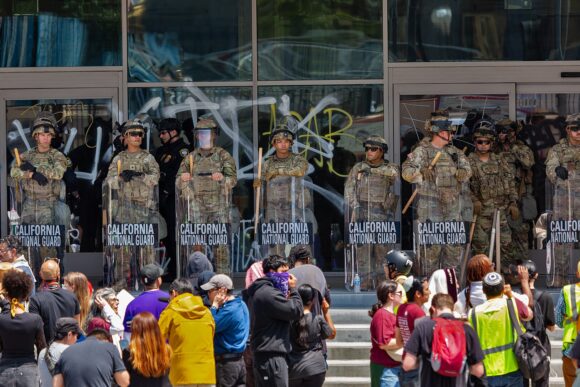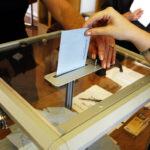The United States Supreme Court has ruled that sweeping immigration raids in Los Angeles can continue, overturning a lower court’s order that had restricted federal agents from conducting stops without “reasonable suspicion.”
The ruling, delivered on Monday, represents a significant victory for President Donald Trump, who has repeatedly vowed to oversee record-level deportations of migrants living in the country unlawfully.
In a 6-3 decision, the conservative-majority court granted Immigration and Customs Enforcement (ICE) agents wide latitude to conduct stops based on race, language, or type of employment — while a broader legal challenge to the Los Angeles operations continues to move through the courts.
The court’s liberal wing strongly dissented, warning that the ruling threatens core constitutional protections. Writing for the majority, Justice Brett Kavanaugh argued that the lower court had imposed excessive limits on immigration enforcement.
“To be clear, apparent ethnicity alone cannot furnish reasonable suspicion,” Kavanaugh wrote. “However, it can be a ‘relevant factor’ when considered along with other salient factors.”
Justice Sonia Sotomayor authored a sharp dissent on behalf of the three liberal justices, condemning the decision as an endorsement of racial profiling. She wrote that “countless people in the Los Angeles area have been grabbed, thrown to the ground, and handcuffed simply because of their looks, their accents, and the fact they make a living by doing manual labour.”
“Today, the Court needlessly subjects countless more to these exact same indignities,” she said.
The White House quickly welcomed the ruling, pledging in a statement to “continue fulfilling its mandate to arrest and deport criminal illegal aliens.”
But Democratic leaders in California blasted the court’s decision. Los Angeles Mayor Karen Bass called the ruling “dangerous, un-American and a threat to the fabric of personal freedom in the United States.” Governor Gavin Newsom went further, warning that “Trump’s private police force now has a green light to come after your family.”
The decision lifts an injunction issued by US District Judge Maame E. Frimpong, who had found “mountain of evidence” that the raids violated constitutional rights. Judge Frimpong’s order prohibited ICE agents from relying solely on race, language, or location — such as bus stops, farms, or car washes — to stop and question individuals. She also barred enforcement actions based solely on a person’s type of work.
Her ruling had been prompted by a lawsuit filed by immigrant advocacy groups, who accused federal officers in Los Angeles of running indiscriminate “roving patrols” that often denied individuals access to legal representation. Judge Frimpong concluded that such practices potentially breached the Fourth Amendment, which prohibits unreasonable searches and seizures.
The Supreme Court, however, signaled confidence that the administration’s policies will likely withstand constitutional scrutiny. While the justices ruled only on the temporary restraining order, their reasoning suggested how they may approach the case if it advances further.
Attorneys for the Department of Homeland Security have argued that officers are targeting individuals based on immigration status rather than race or ethnicity. They further contended that Judge Frimpong’s injunction placed unlawful restrictions on ICE operations.
Plaintiffs and advocacy groups behind the lawsuit reacted with outrage. “I didn’t think this would be possible,” said Brian Gavidia, a US citizen who was briefly detained during the sweeps in June. “I thought we had laws here about racial profiling.”
Armando Gudino, executive director of the Los Angeles Worker Center Network and one of the plaintiffs, warned that the decision carried nationwide consequences. “This ruling has effectively legalised racism,” he said, adding that “everyone in America should be alarmed.”
The Trump administration began the high-profile raids in Los Angeles in June, targeting workplaces including Home Depot, which sparked immediate protests and unrest across the city. In response, Trump dispatched nearly 2,000 National Guard troops and 700 Marines — without approval from California state authorities.
That deployment was later declared illegal by a federal judge, who said the president had overstepped his authority. The White House dismissed the ruling, accusing “a rogue judge” of trying to undermine Trump’s power “to protect American cities from violence and destruction.”
The Supreme Court’s green light for the Los Angeles raids comes as Trump prepares to intensify federal law enforcement actions in other cities. In August, he ordered National Guard units to Washington, DC, citing concerns about violent crime. He has also deployed federal officers to bolster the capital’s police force.
Trump has now indicated that he may send federal forces and National Guard troops to Chicago as well, with a decision expected this week.






